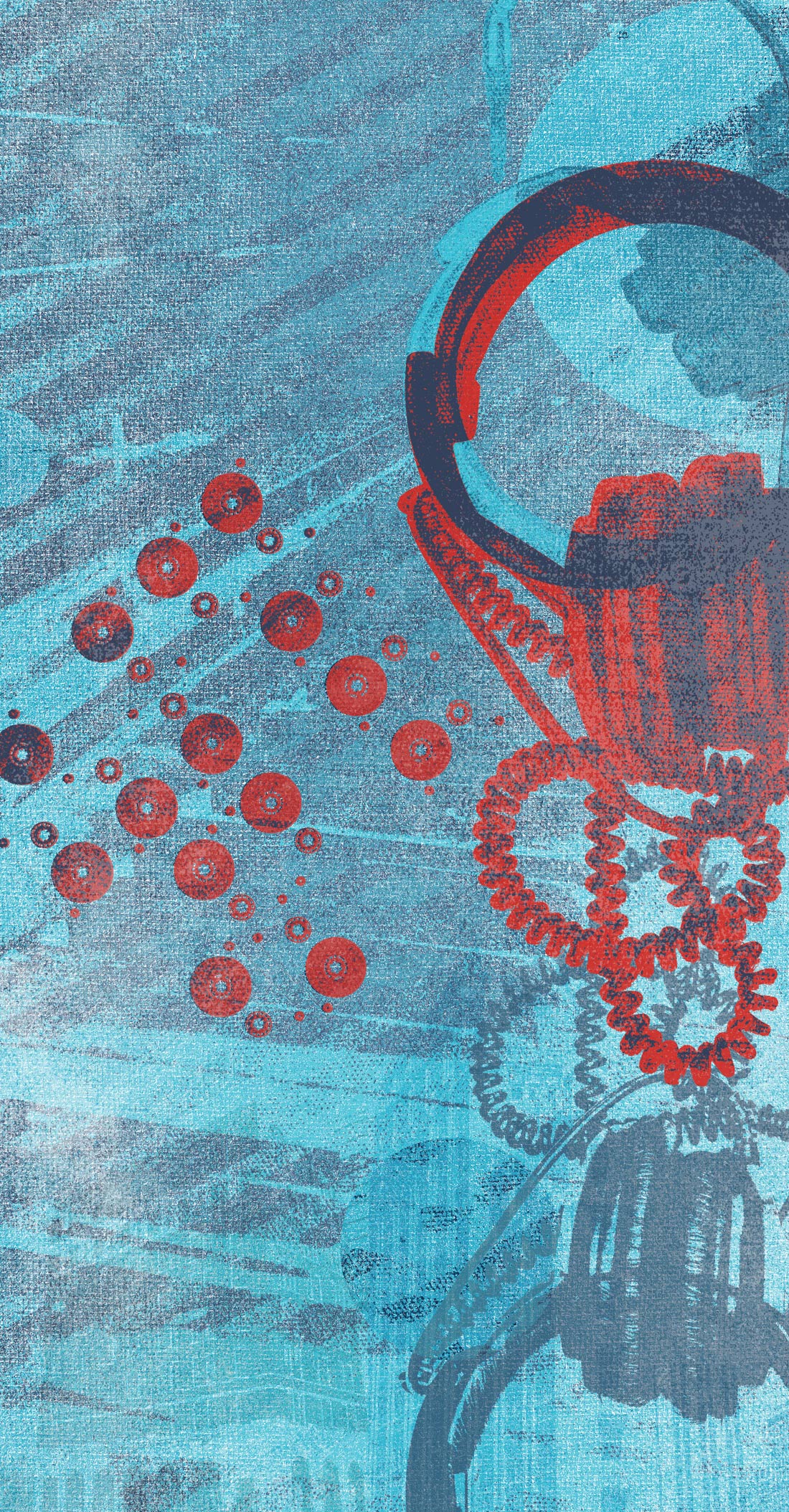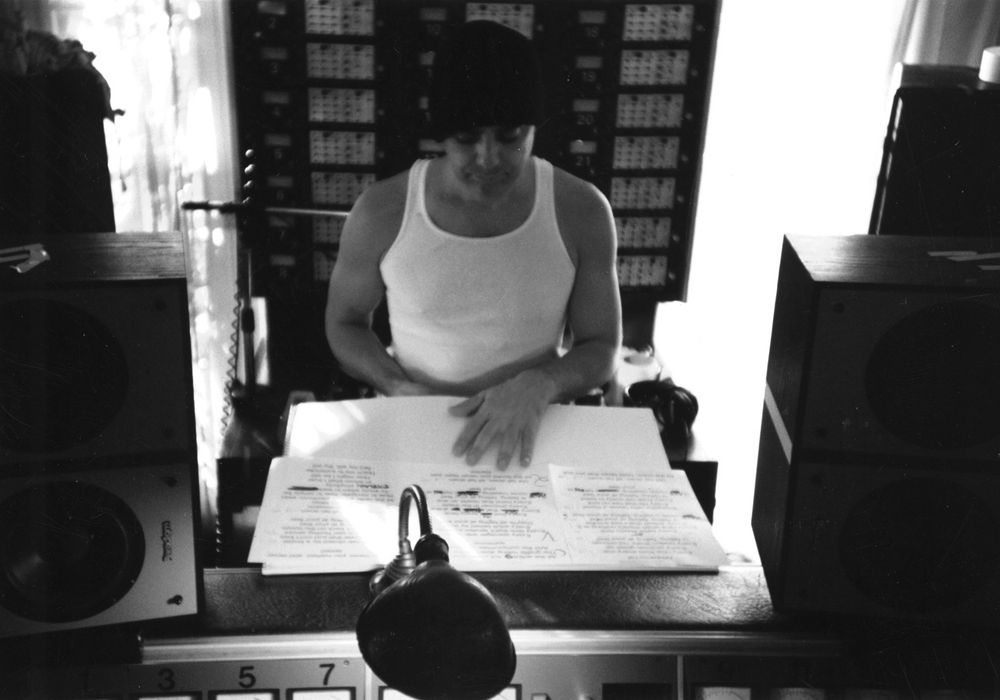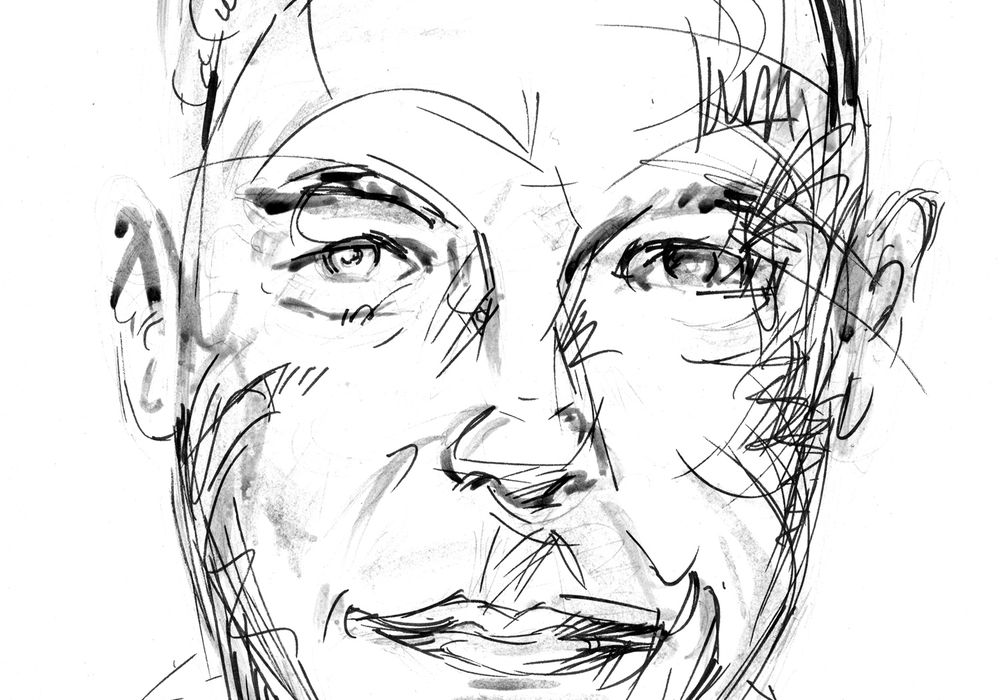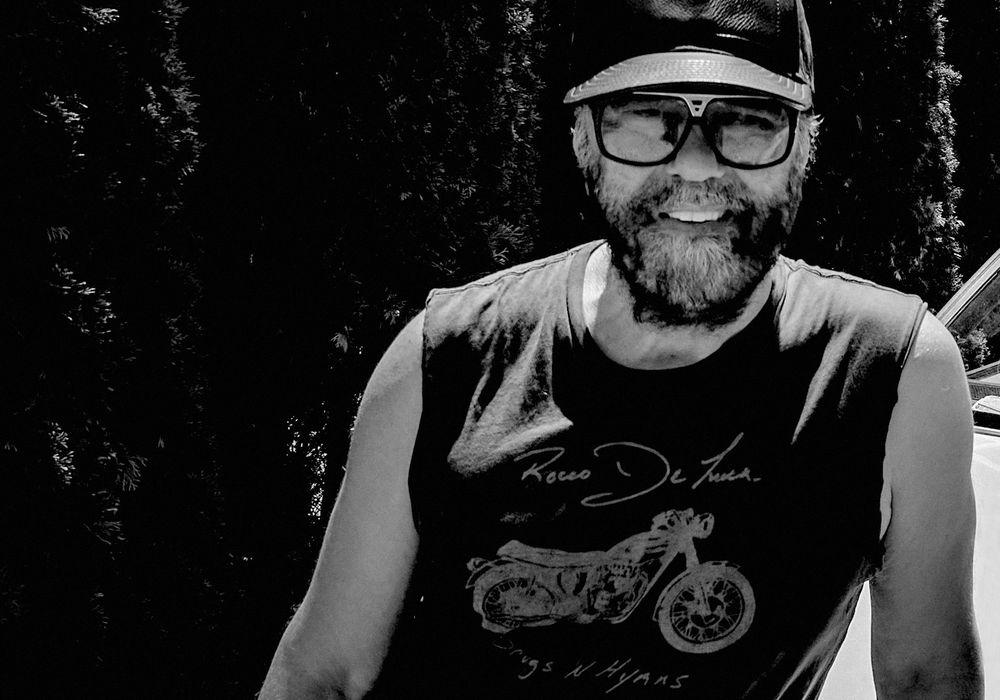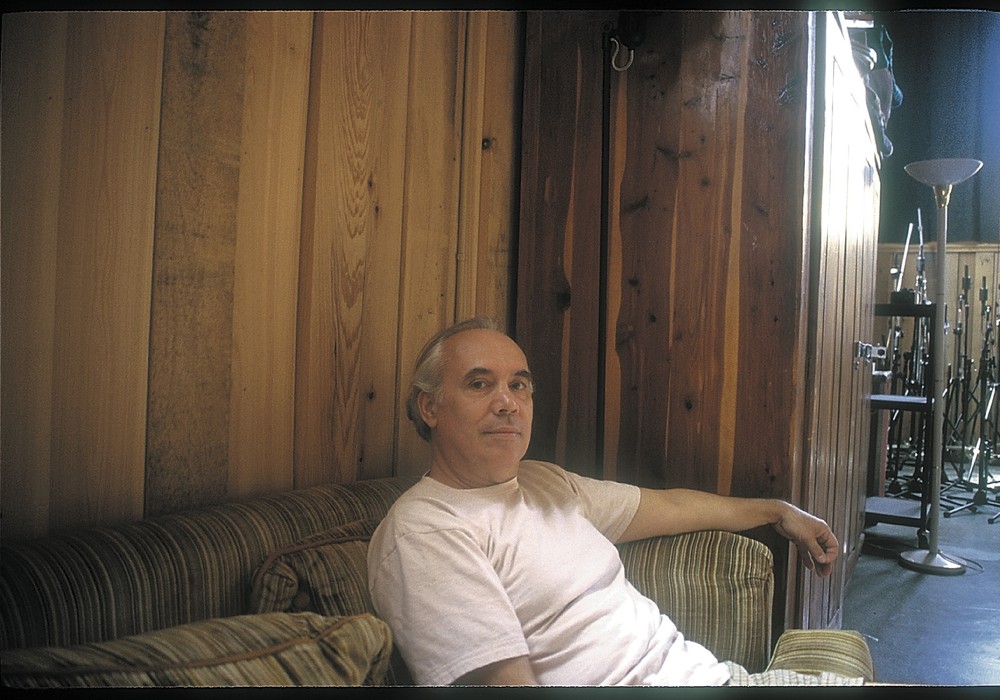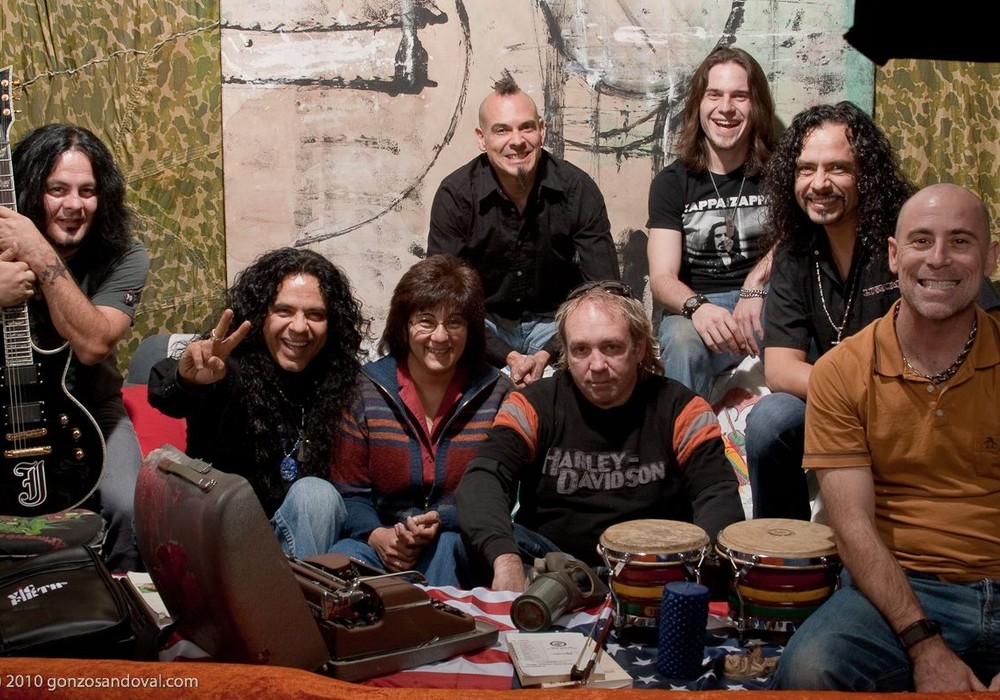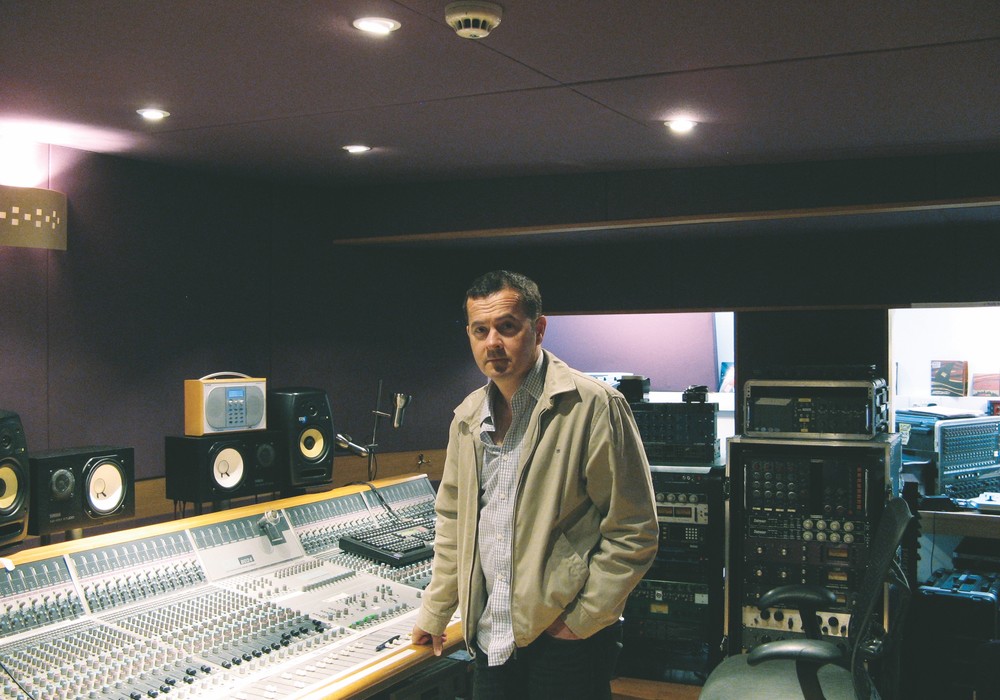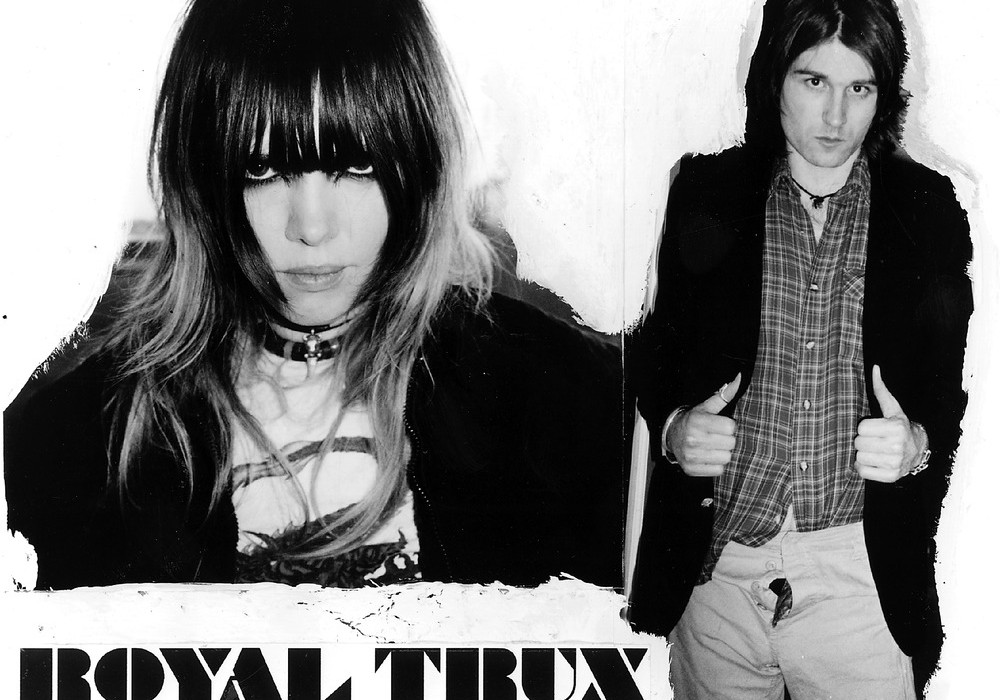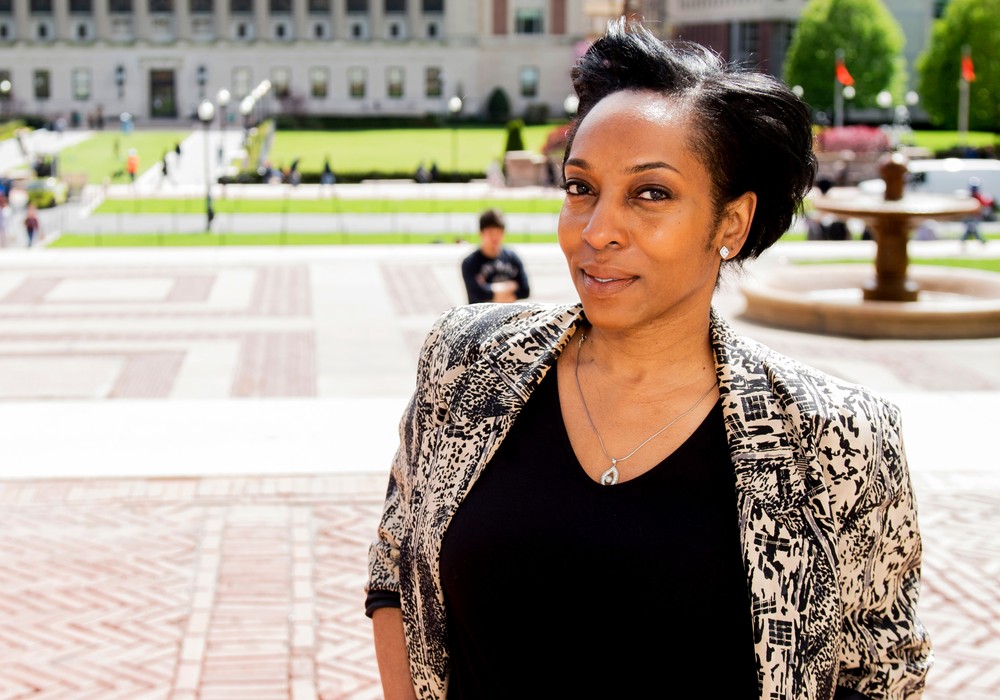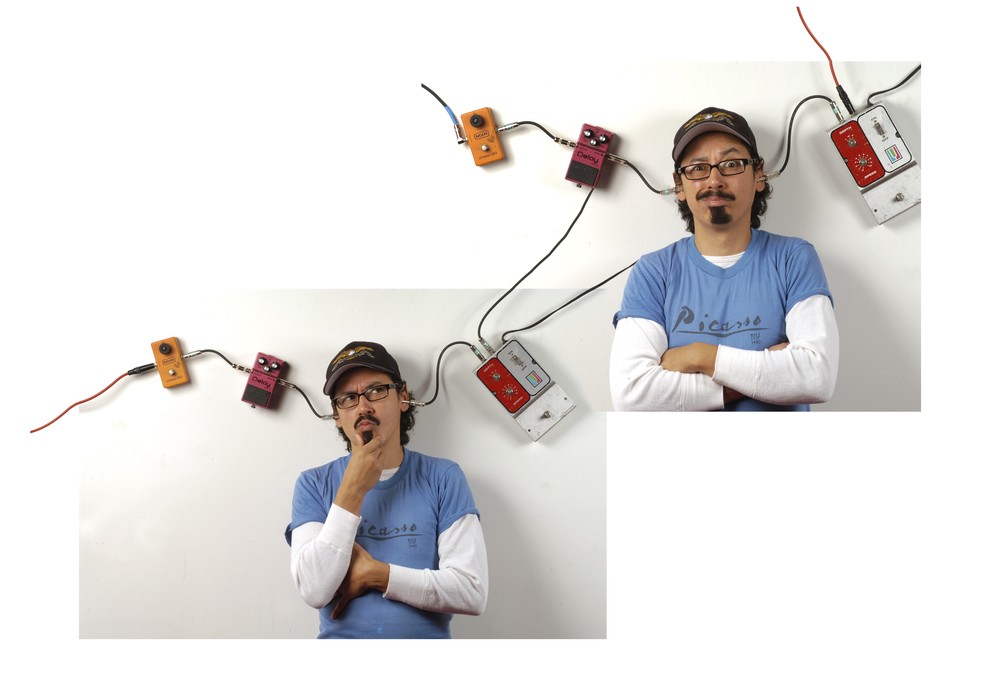When the chance to interview David Byrne presented itself, the first thought I had was how enjoyable it would be to talk about David's work over the years with Brian Eno. Sure, Eno produced some great Talking Heads records back in the day, but my favorite collaboration was 1981's My Life in the Bush of Ghosts, a Byrne/Eno record that fit "flown in" found vocals over groove-based studio experiments. And to top that off, in 2008 they collaborated again on the excellent album, Everything That Happens Will Happen Today, comprised of more straightforward songs than ...Bush of Ghosts. We did discuss these albums, but we also were allowed plenty of time to delve into numerous topics, including David's recent and ambitious collaboration with Fatboy Slim and an army of female vocalists on the epic Here Lies Love, a double album based on the life of Imelda Marcos. After a quick photo session, David and Pat Dillett, a producer/engineer who has worked with David frequently (see his own interview this issue), joined me in the front room of Kampo Studios in NYC (R.I.P.) and we chatted away.
What would have been the first session that you guys worked on together?
David: I seem to remember that I had known Pat for a while through other artists that he worked with and other stuff that he had done.
Pat: The Red Hot [benefit albums] — we did stuff together where I either mixed it or such.
D: Yeah — odds and ends, this and that. So when we did start working together in earnest on a whole record it wasn't brand new, where we had to figure out, "What is our working relationship?" We already had some of that worked out, which was great.
P: I guess Grown Backwards [released in 2004] was the first record of yours that we had done together. Probably through Arto [Lindsay] and people like that were relationships of Brazilian things, since Luaka Bop [Records] was so instrumental in that.
Pat, you did quite a bit of Brazilian stuff for a while. Was that in conjunction with Luaka Bop?
P: No, not really. I think I mixed that Tom Zé thing [Brazil Classics 5: The Hips Of Tradition]. It was great. D: Yes, that was one of ours. But the other stuff was more mainstream than Tom Zé.
So both of you have done records and sessions in studios all over the world. What kinds of things have you come across in studios?
D: I did a couple days of sessions in a studio in India, in Chennai (which used to be called Madras) with a soundtrack composer. I had written a song, and I asked him to arrange it as if it was an Indian soundtrack.
Like Bollywood, exciting kind of stuff?
D: Exactly — make it go from one kind of genre to another and then imagine all these things happening. We found out mid-session that after they would do all the recording — maybe one or two days, it was a 10- minute long track — they would mix it and then erase all the multitracks. "It's done. You've got the stereo mix. Okay, you're good. We need this multitrack for the next session that's coming in for tomorrow." You can imagine how many songs, how many pieces of music had been recorded on that. So we said, "Wait a minute. See if we can buy them a couple of reels of tape and we can bring it in. That way we can leave with the tape." That was another thing — bringing in tape. India was very self-protective about that type of technology. They wanted to encourage homegrown tech stuff, which has really worked for them. So bringing in a reel of tape turned out to be a really big deal. The other part was [that] the session and the actual studio costs were not that high, but there were all of these extra costs that kept piling in — like the guy who would bring tea. The "tea wallah" would bring in big trays of tea. Every hour he would appear with trays of tea for all of the engineers and all of the musicians. At the end there was this bill for tea and it was like, "Woah! Look at that — he's charging us for all that tea!"
That's pretty crazy. Did you lose some of the multitracks too?
D: No, we got them and then remixed them here in New York, although the alignment was totally wacky. It was like, "Holy shit. This can't be." It was so wacky that the studio said, "No, this can't be right." I said, "No, you have to do it because it doesn't sound right."
P: In Brazil we went to one of those places in Bahia years and years ago where we said, "Okay, we need to align the machine." They said, "We aligned it when we got it."
D: If you only work on that machine, then you're fine. It would play back as you had recorded it as long as you stayed on that machine.
P: We aligned it and fucked up their whole thing. Everybody who ever worked there for the next five years... that's one of the beautiful things about digital. You can...
